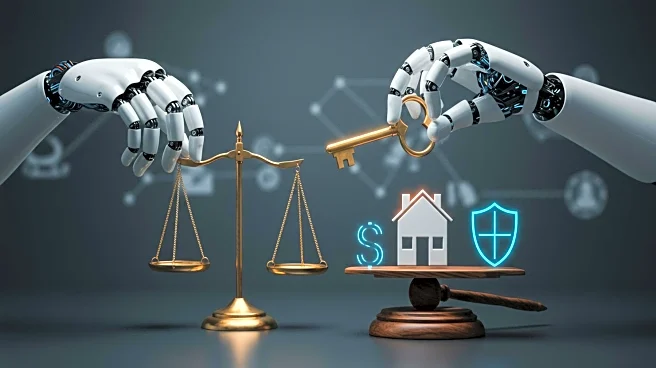What is the story about?
What's Happening?
The University of Chicago Law School is launching a new course focused on utilizing artificial intelligence to improve understanding and accessibility of tenant rights. This initiative aims to democratize legal knowledge by allowing students to develop a bespoke legal-tech product. Participants will engage in creating a database of meticulously researched summaries on renter's rights, which will be accessible to the public. The course encourages students to adopt an entrepreneurial mindset, interviewing individuals to identify common questions and needs related to tenant issues. This approach is designed to ensure the tool's relevance and utility for general users.
Why It's Important?
This course represents a significant step in addressing the imbalance in legal representation between landlords and tenants. According to CivilRightToCounsel.org, landlords are represented by counsel 83% of the time, whereas tenants only have legal representation 4% of the time. By equipping students with the skills to develop AI-driven legal tools, UChicago Law aims to empower tenants with better resources to navigate legal challenges. This initiative could lead to more equitable outcomes in landlord-tenant disputes, potentially reducing the number of tenants who face legal proceedings without adequate support.
What's Next?
The course will proceed with students building the AI-driven database throughout the fall quarter. As the project develops, it may attract interest from legal professionals and advocacy groups seeking to enhance tenant rights. The success of this initiative could inspire similar programs at other law schools, fostering a broader movement towards integrating AI in legal education and practice. Stakeholders in the legal tech industry may also monitor the project's progress, considering potential collaborations or expansions.
Beyond the Headlines
The integration of AI in legal education highlights a shift towards innovative solutions in addressing societal issues. This course not only aims to improve tenant rights but also reflects a growing trend of using technology to democratize access to legal resources. The ethical implications of AI in law, such as ensuring accuracy and preventing bias, will be crucial considerations as the project evolves. Additionally, this initiative may influence cultural perceptions of AI's role in the legal field, promoting its use as a supportive tool rather than a replacement for human judgment.

















